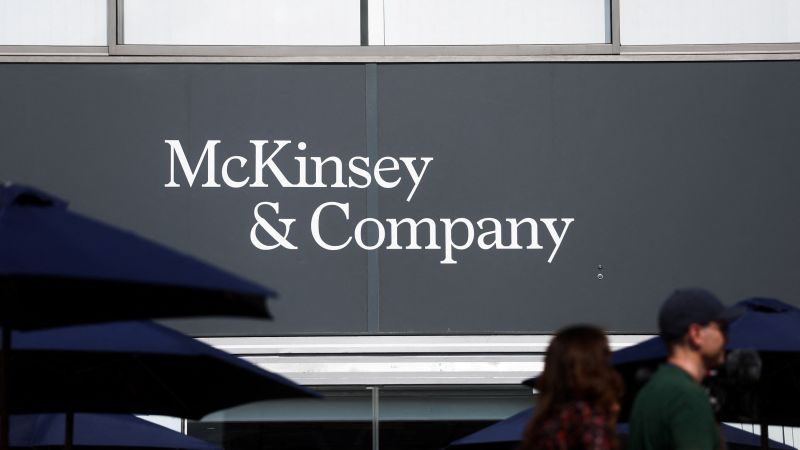The Justice Department is investigating McKinsey & Company, a global consulting firm, for its role in advising drug companies on how to increase sales of opioids. Prosecutors from Virginia and Massachusetts are leading the criminal investigation and are working with the Justice Department’s civil division in Washington, DC. The focus of the probe is on the advice that McKinsey provided to pharmaceutical companies regarding the sale of highly addictive prescription drugs. McKinsey has not yet commented on the matter.
Critics have alleged that McKinsey’s work helped opioid manufacturers like Purdue Pharma, Johnson & Johnson, and Endo to boost the distribution of these drugs across the country. The consulting firm has already paid hundreds of millions of dollars in settlements related to its alleged involvement in the opioid crisis. The Wall Street Journal first reported on the criminal inquiry. The abuse of prescription opioid painkillers in the US has become an epidemic, resulting in tens of thousands of deaths according to the CDC.
McKinsey has stated that it has stopped working with clients on “opioid-specific business” and is actively supporting efforts to combat the crisis. The company’s involvement in advising drug companies on opioid sales has raised concerns about its role in contributing to the widespread addiction and overdoses associated with these drugs. The Justice Department has declined to comment on the ongoing investigation into McKinsey’s activities. The consulting firm’s reputation and future business prospects could be impacted by the outcome of this probe.
The criminal investigation into McKinsey’s involvement in advising pharmaceutical companies on opioid sales highlights the complex and far-reaching consequences of the opioid crisis in the US. The consulting firm’s alleged role in helping drug manufacturers increase the distribution of addictive prescription drugs underscores the ethical and legal challenges faced by companies operating in industries with significant public health implications. The ultimate findings of the probe could have significant implications for McKinsey and other consulting firms involved in advising healthcare and pharmaceutical clients.
The scrutiny faced by McKinsey over its advice to drug companies regarding opioids reflects a broader reckoning with the role of various actors in contributing to the opioid crisis. The company’s payment of hefty settlements and its decision to no longer engage in “opioid-specific business” suggest a recognition of its past involvement in activities that have contributed to the crisis. The ongoing investigation serves as a reminder of the need for greater accountability and transparency in the healthcare industry, particularly in relation to the marketing and distribution of prescription drugs with high abuse potential.
As the Justice Department continues its investigation into McKinsey’s actions, the consulting firm’s reputation and legal standing may be further tested. The findings of the probe could have implications for future litigation, regulatory actions, and public perception of McKinsey as a trusted advisor in the business world. The intersection of healthcare, business, and public health concerns in this case underscores the complexities and challenges of addressing issues related to the opioid crisis and the responsibilities of all stakeholders involved. The outcome of the investigation could have lasting implications for how consulting firms and other companies approach their work in industries with significant public health implications.













